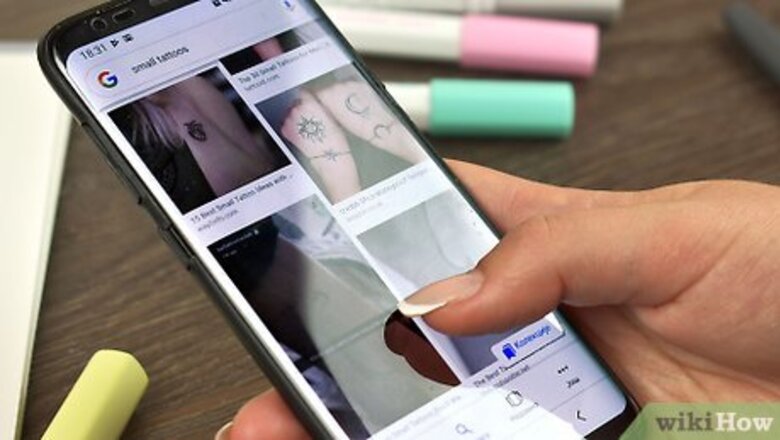
views
Designing Your Tattoo
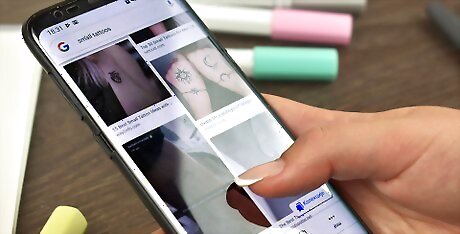
Look for inspiration from other people's tattoos. Find tattoo designs on famous people that you like. If any of your friends have tattoos that you find aesthetically pleasing, do an image search online to find tattoos in a similar style. Get an understanding of tattoo culture so that you have a better grasp of what may look good on you. Visit tattoo blogs and follow tattoo enthusiasts on social media. Flip through tattoo artist's portfolios' online or visit local tattoo parlors and request to see their work. Looking at a professional's work can inspire you to create something unique yourself. Some of the most well-known artists include Kaiyu Huang, Mo Ganji, Paco Dietz, and Chen Jie. You can also get inspired by artists like Lucy Hale, who specializes in temporary watercolor tattoos. Tattoo styles include traditional American, traditional Japanese, realism, black and gray, and illustrative. Popular tattoos include arrows, flowers, semicolons, and tribal art.
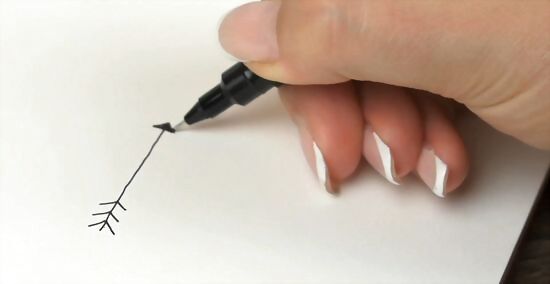
Focus on something personal. Think of something visual that relates to an important phase or event in your life. Other great ideas include images that remind you of family or friends. Think of metaphors that you can use that apply to your life. For example, if Edgar Allan Poe is your favorite author, you can draw a raven tattoo to represent your love for his work. You draw a temporary tattoo of your mother's name.
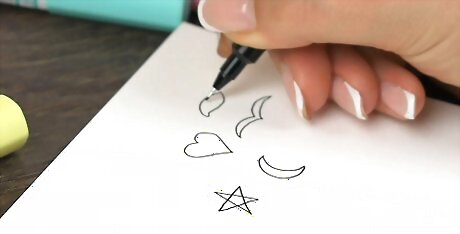
Start simple if you're new to drawing. Creating a simple design will help you become acclimated to drawing. Try simple geometric shapes like squares and triangles before moving onto more complex and detailed images. Other simple designs include a puzzle piece, a star, a phrase or word, or a musical note.
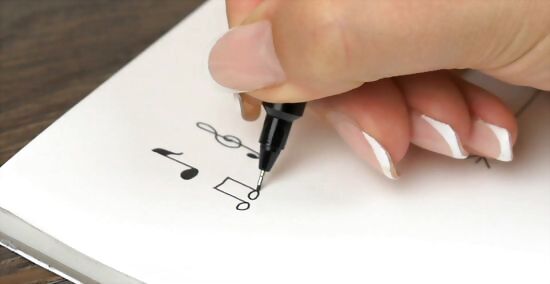
Sketch out your different ideas. Use a sketchpad and a pen to create ideas and forms on paper. Visualize what you'd want to create for your temporary tattoo and try drawing it on a regular piece of paper. If you mess up, start again next to your mistake. The goal is not to get everything down perfectly, but to explore different ideas, shapes, and forms that you can use in your temporary tattoo.
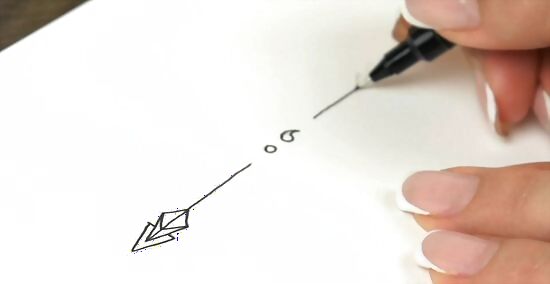
Draw the outline of your tattoo first. Don't get caught up in minute details or shading at first. Start by drawing the outside outline of your image before moving onto more intricate parts. Try to draw continuous, steady lines and avoid scratching or scraping at the image.
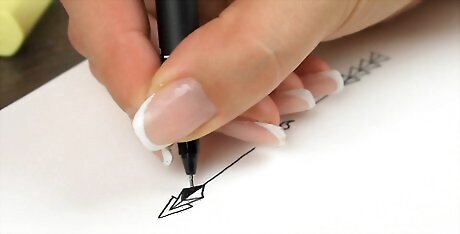
Add smaller details and fill in colors. Once you've got the outline drawn, you can start filling in the finer details. Work your way around the image and fill in smaller details. When you're satisfied with what you've designed and drawn, you can move on to apply the temporary tattoo to your skin. Use markers with a smaller tip to draw in fine detail.
Using Paper to Make an Outline on Your Skin
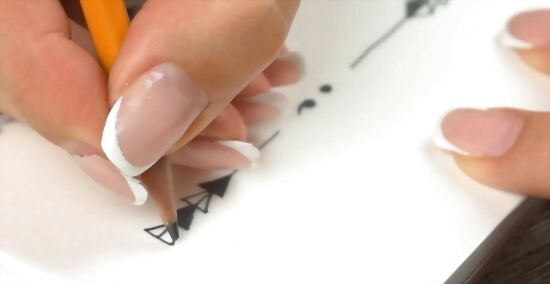
Trace the design onto tracing paper for ease of use. Tracing paper is thin so you can see through it. Use a pencil to go over the design, making thick, dark lines. You need to make them thick because otherwise, they won't transfer well to your skin. Keep in mind that the design will flip when you transfer it to your skin. If you need to, trace it on one side, then flip it over to trace it backwards on the other side. You'll apply the "backwards" side to your skin, which will then flip the design the right way.
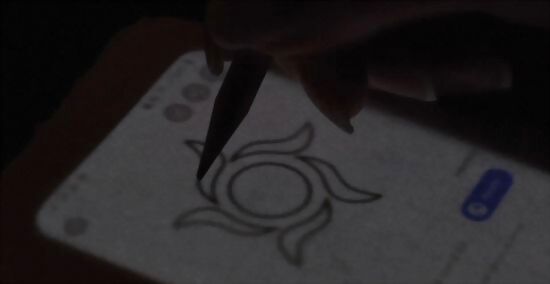
Use printer paper if you don't have tracing paper. You can use regular paper, but you won't be able to see as well. Try tracing the design lightly on a lighted screen, such as a tablet. To transfer it to the other side so the design is flipped, rub pencil back and forth on another piece of paper until you have a solid block. Place your design on top, right-side up. Trace over it with a pen, hard, then flip it. You'll have a light outline in pencil, brought up from the scribbling you did. Trace over it with more pencil or even a pen to make it darker before trying to apply it to your skin.
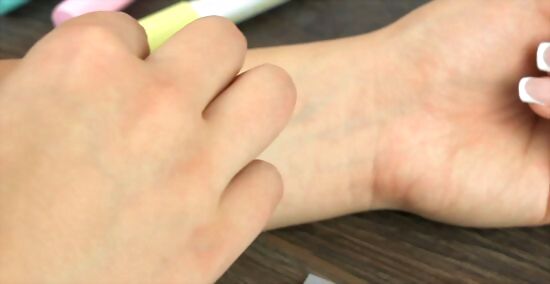
Add rubbing alcohol to your skin. The rubbing alcohol will help adhere the pencil to your skin. Rub it up and down where you want to place the tattoo, and make sure your skin is still slightly damp with it when you put the paper on it. You can pour a little on, then rub it in with a cotton ball.
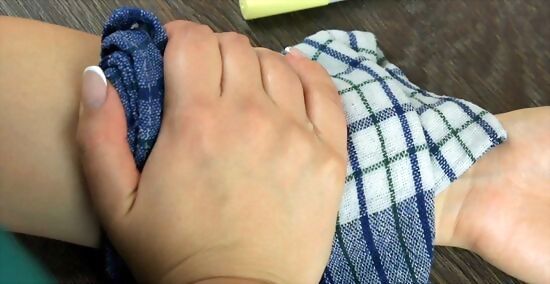
Press the paper into your skin, pencil-side down. Apply a damp washcloth over the paper, and hold it there for a few seconds. Peel up a little of the paper to see if you have an outline. If you don't, hold it there a few more seconds. Remove the paper when you have an outline. Now you have a tattoo you can trace over.
Drawing with Marker and Hairspray
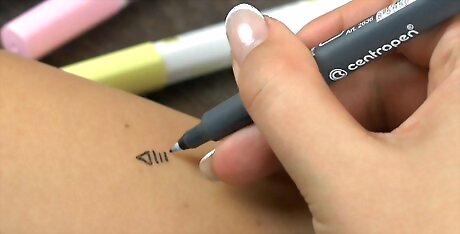
Test the marker on your skin first. You can use any permanent marker, but keep in mind that some aren't made to be used on the skin. Always test the marker on a small area of skin first. That way, if you get a reaction, you know not to use that marker. For instance, test a little bit on the inside of your elbow to see how it reacts. A temporary tattoo pen is your best option, which you can find online.
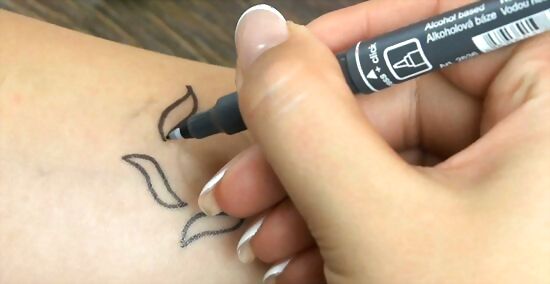
Draw the outline with a thin marker. Use a fine point pen to draw the outside of your design. That way, you can get in the fine details that larger markers won't let you do. Draw a freehand design, or trace over a pencil design you adhered to your skin.
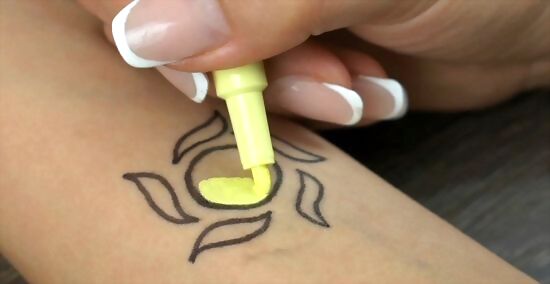
Fill in larger areas with a fat-tipped marker. Once you have the outline in place, save yourself some time by using a marker with the large tip to fill it in. Use this size marker to cover a big area, as well. You can fill in the lines with a different color, if you'd prefer, like a coloring book.
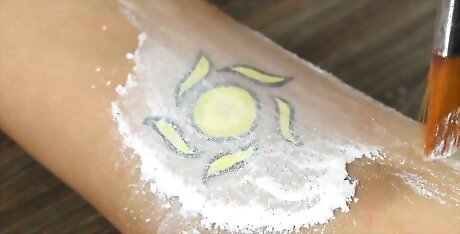
Rub baby powder on the design. Sprinkle the baby powder all over the design until it's covered. Rub it in gently with the tips of your fingers. When you have it covered, gently shake and brush the excess powder off. The baby powder helps set the design. You can even layer baby powder, then ink, then baby powder, then ink, over and over again to build up a solid tattoo.
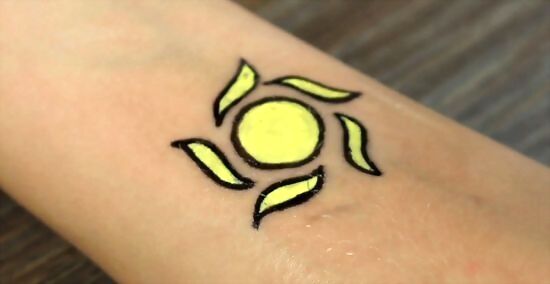
Spray the design with hairspray. Hold the hairspray about 6 inches (15 cm) from the tattoo. Spray a solid layer of hairspray over the tattoo, moving back and forth as you do. Make sure you cover the whole tattoo and create a thick layer. Let it air dry to finish the tattoo.
Trying Eyeliner and Liquid Bandage
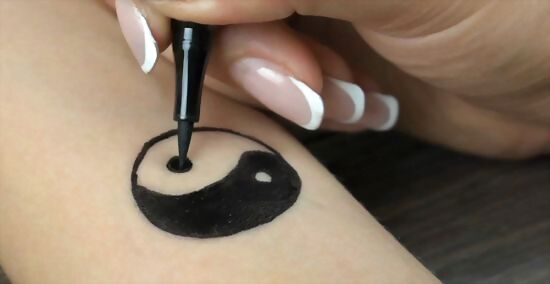
Draw the tattoo on with the eyeliner. Start by tracing the outline of the tattoo, so you know where the edges are. Use a fine tip for this part. Once the outline is in place, fill in the tattoo with the eyeliner, using a thicker tip if you have one. Freehand your drawing or trace over the pencil outline you created with paper.
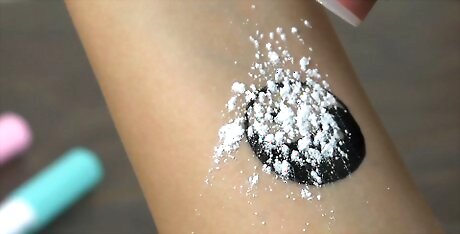
Press baby powder into your tattoo. Sprinkle baby powder over the whole tattoo until it's covered. Use your fingers to gently rub it into the tattoo. Make sure to rub it into the whole thing. Baby powder will help hold the tattoo in place.
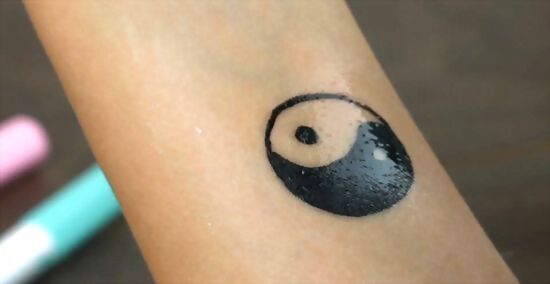
Spray liquid bandage over the top of the tattoo. Spritz the liquid bandage over the tattoo. Make sure to get the whole area, as the tattoo won't stay in place as long without it. Let it dry completely before you try to wash it. You can purchase liquid bandages in the bandage section of your pharmacy or grocery store. The liquid bandage makes the tattoo waterproof.
Using Temporary Tattoo Paper
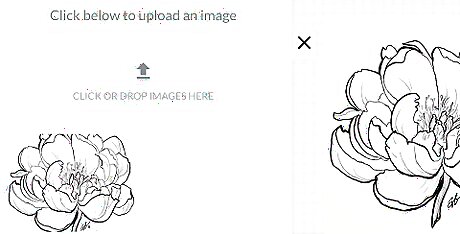
Upload the design to a temporary tattoo website for professional printing. For many temporary tattoo websites, you can create your own design and upload the image. Then, purchase that tattoo from the company, and they will send it to you in the mail. These temporary tattoos work like the ones you got as a kid in your Halloween bucket!
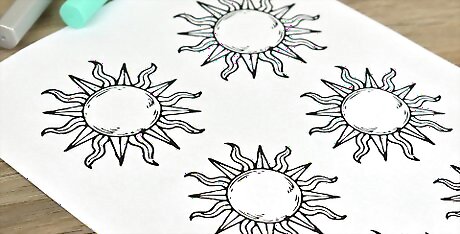
Print off a temporary tattoo with an inkjet printer for multiple tattoos. Purchase temporary tattoo paper for the printer online or in a big box store. Design your tattoo or even upload an image you want to use. Flip the image before you print it, as it will flip again when you put it on your skin. Any inkjet printer will work for this project.
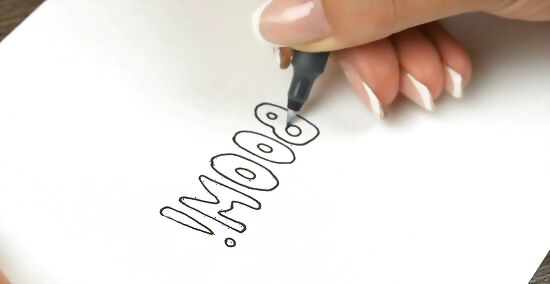
Draw on temporary tattoo paper for a simple project. Buy temporary tattoo paper meant for a printer or for drawing on. Use pens or permanent markers to draw your tattoo, but keep in mind that it will flip when it goes on your skin. That means any words you write will be backward.
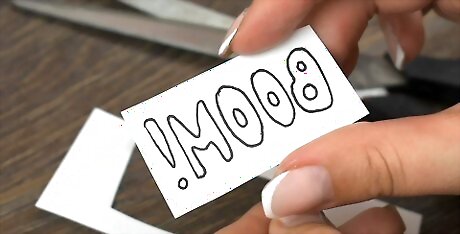
Cut the tattoo out. Put the plastic film over the tattoo paper, which will make it easier to cut. Use scissors to cut around the tattoo. You can leave a little bit around the edges, as it will go on clear. Some tattoo papers are designed to be machine cut so you can cut them out with your Silhouette or Cricut.
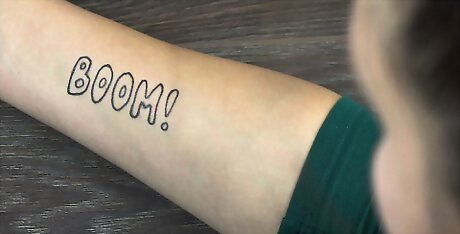
Apply the temporary tattoo to your skin. Peel the plastic back off the sheet, and press the tattoo into your skin. Then, press a wet washcloth over the tattoo until it is thoroughly damp, and hold it there for 30 seconds or so. Peel off the paper, leaving the tattoo behind on your skin. If the tattoo seems to be sticking to the paper, press it down again, and add a bit more water.


















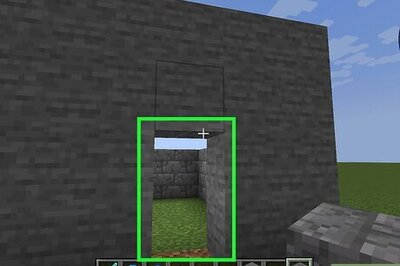
Comments
0 comment